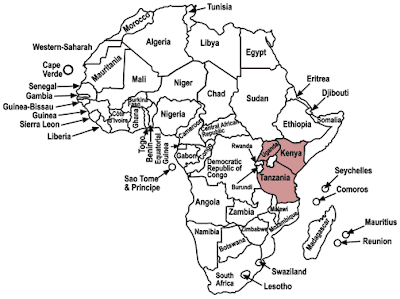
Even when there appears to be grandiloquent discussions on the creation of an African Union government by 2025, the West African regional grouping of Ecowas is talking about a borderless West Africa by 2020.
Once again, this raises the question of why so far a date? Last week's debate at Ghana's Teacher's Hall raised the issue of "instantists"; "rapidists", and "gradualists", in my view, polarising the issue greatly.
These classifications suggest that there are those, respectively, that want to pursue AU government instantly, rapidly, and gradually.
For ECOWAS leaders meeting at the 32nd summit in Abuja, I suspect those that had proposed the date of 2020 might have fallen prey to such classifications. The question is: how helpful are these are moving the issue of comprehensive integration forward? Comprehensive, because, in my view, even if there's an unbearable lightness of being West African, I think ECOWAS has not done a bad job.
Elsewhere in the Voice of America coverage of the summit, the article touches on the right of residence:
problems are still plaguing the plan. For instance, under a current provision, residents of ECOWAS member states can live in another member state for up to 90 days without obtaining a visa, but there is no provision for long-term residence.
Before this explanation, rationale is given of why ECOWAS is looking for a borderless West Africa:
The purpose of a border-free zone, first thought of by ECOWAS in the 1980s, is to allow the free movement of goods and people throughout the zone.
It is important to note that this meeting was a landmark one, as it saw the swearing in of Ghanaian lawyer Dr.Mohammed Ibn Chambas as the de facto President of the heretofore ECOWAS Commission, as well as adoption of interim report of the Commission for 2007, which stated:
the economy of the sub-region recorded a GDP growth of 6.1 percent in 2006 as against 5.5 percent in 2005, observing however, that the high prices of petroleum products posed a challenge for the economies of individual states

Please find above the organigramme of the new commission, which I culled from the newly-designed ECOWAS website.



